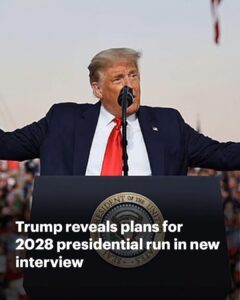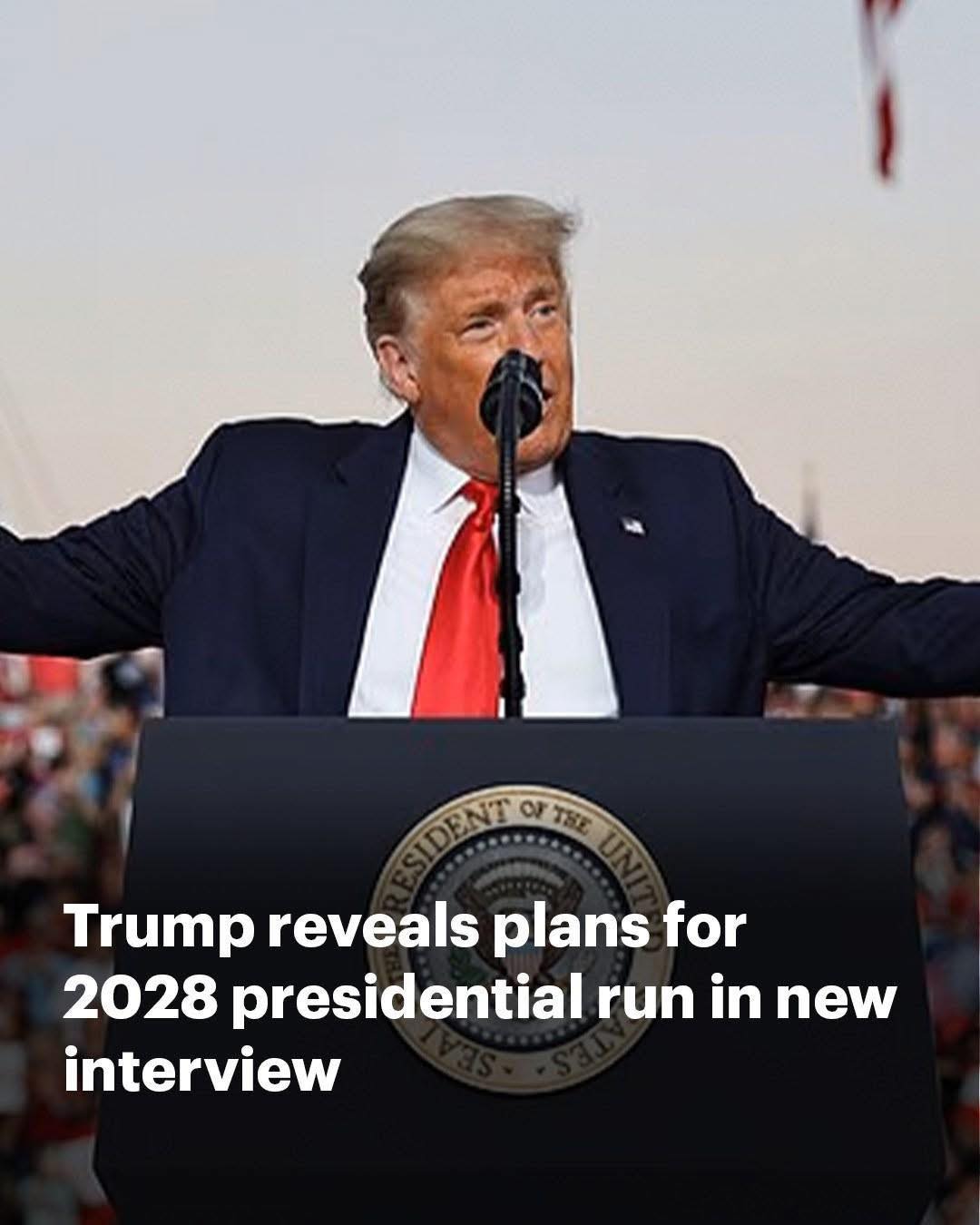There are moments, usually just before sunrise, when President Donald Trump speaks more freely than even his closest aides would like. No teleprompter. No carefully-weighted political script. Just instinct, impulse, and that old showman’s flair for dangling the impossible in front of an audience, just long enough to make them dream about it.
It was one of those mornings when Trump, sitting across from CNBC hosts and glowing with self-confidence over what he claimed were history-making economic wins, decided to drop his latest headline. Not about tariffs. Not about the border. But about time — and whether four years in office will really be enough for a man who insists he’s only just “getting started.”
“Unless I Run Again…”
The comments came on Tuesday, during a wide-ranging business interview on Squawk Box, where Trump was touting record-breaking results in markets, factory openings, and — in his telling — the “highest vote ever recorded in Texas.” Smirking, he noted that such a record might just last forever… “unless I run again,” he teased, letting the words hang heavy in the studio air.
Co-host Becky Quick, sensing an opening, leaned in.
“Are you going to run again?”
The president chuckled. “No… probably not.”
That denial sounded light — almost dismissive — but then the familiar Trump rhythm kicked back in. “I’d like to run,” he added quickly. “I have the best poll numbers I’ve ever had. People love the tariffs, and they love the trade deals and they love that foreign countries aren’t ripping us off.”
In that instant, the interview left the world of economic talking points and dove back into Trump’s favorite form of political theatre: speculation. What if a two-term president — barred under the Constitution from ever serving again — simply refused to close the curtain? What happens if America’s biggest political showman won’t leave the stage?
The Reality He’s Up Against
Under the 22nd Amendment to the U.S. Constitution, ratified in 1951 after Franklin D. Roosevelt’s unprecedented four-term run, presidents may serve no more than two terms in office. That cap applies whether those terms are consecutive or broken up — meaning not even Grover Cleveland, the only president to serve non-consecutive terms, could have run again after his second stint.
Even still, Trump has continued to wink, nod, and half-joke his way around the idea of a 2028 run, leaving supporters and critics alike to wonder: is he serious, or just stirring the pot?
“I won every swing state, I won the popular vote by millions… my poll numbers are better now, much better than during the election,” Trump declared during the CNBC segment, brushing aside polling averages — which currently place his approval rating in the high-30s to low-40s — as “fake news media jokes.”
Asked pointedly if his low rating would damage a future run, Trump scoffed: “That’s media polls. On the ground it’s different.”
The Loophole Obsession
The media fascination over Trump staying in power beyond 2029 isn’t entirely invented. Trump himself has repeatedly fanned those flames — particularly when speaking to his most devoted supporters, who routinely cheer when he references serving “12 years” instead of eight.
At rallies, he’s jokingly floated a “third term”perhaps half a dozen times since late 2024. Last spring, the rumors went from fringe to mainstream when red baseball caps reading ‘Trump 2028’ began circulating online — sold not by his official campaign, but by independent Trump-branded merch stores.
NBC’s Kristen Welker confronted him about the hats in May. Trump didn’t deny the whispers — he instead leaned into them.

“I will say this — so many people want me to do it,”Trump said. “I have never had requests so strong.”
Then, in the very next breath he conceded: “To the best of my knowledge, you’re not allowed to do it.” Still… “there are people selling the 2028 hat.”
That blend of denial and temptation has become a signature Trump maneuver. So has raising the idea that he just might find a way around it.
“There are methods,” he told NBC in March. “People say there are ways you could do it… I don’t know about that. But there are people talking about it.”
How Would That Even Work?
Among right-wing legal hobbyists and constitutional bloggers, one popular theory has emerged:
Trump could, in theory, run as a vice-presidential candidate in 2028 behind a loyal ally like Vice President JD Vance or Secretary of State Marco Rubio.
If that ticket wins, and the new president then resigns or steps aside, Trump would — by the Presidential Succession Act — rise back to the Oval Office.
That would appear to circumvent the direct election ban, while still giving him control.
Whether that would survive Supreme Court scrutiny is deeply questionable, but in the world of Trump’s political circus, the idea itself is half the power. It electrifies his supporters, enrages his critics, and keeps the spotlight fixed firmly where he seems to love it most — on him, past 2028.
